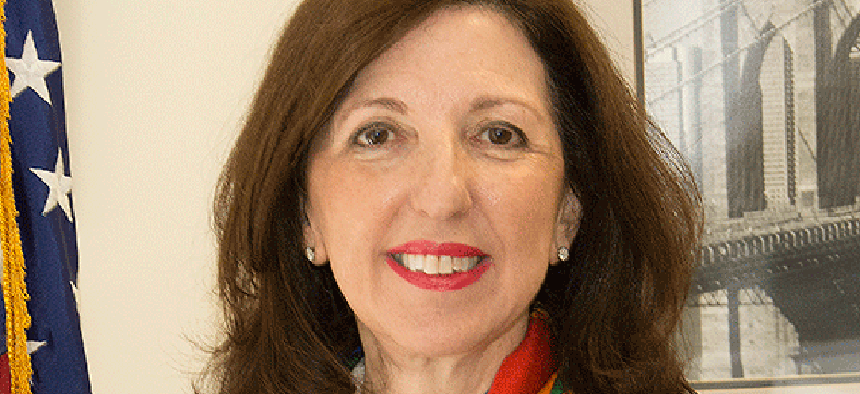Jobs Skills and Living Wage are Critical for Domestic Violence Survivors

Three years ago, Abigail made a decision that would change her life forever: With her young son Landon in her arms, she packed up and left her abusive husband.
Although Abigail was finally free from her husband’s violent and manipulative behavior, she had no income, no path to re-enter the workforce, and could barely afford to feed her son. She had been isolated, prevented from working and made financially dependent by the man who mistreated her.
Abigail’s story is far too commonplace. One in four women will face domestic violence in her lifetime and 98% of domestic violence victims encounter financial abuse. Abusers prohibit their victims from pursuing career opportunities, control their bank accounts, and prevent them from pursuing education and other means of career development. As a result, when a victim leaves, she is likely to fall into a cycle of reliance upon public benefits and low-wage work.
In New York City, this problem is compounded by the exorbitant cost of living and the citywide housing crisis. Most victims of domestic violence, along with their children, will join the flood of New Yorkers who are homeless and living in poverty.
To address this problem, in 2011 Sanctuary for Families, the state’s largest service provider focusing exclusively on survivors of gender violence, launched the Economic Empowerment Program (EEP), an in-house workforce development and technical training initiative.
A new report, The Economic Empowerment Program 5 Years of Transforming Lives, documents how the program successfully provided career readiness to more than 500 survivors of gender violence by training them in skills that lead to living wage, career-track jobs. The vast majority are women of color living under the poverty line. The results have been life-changing: 88% of participants graduate with an average current pay of $13.71 per hour, almost $5 more than New York State’s private sector minimum wage.
EEP employment specialists are also social workers with a deep knowledge of the trauma faced by survivors of gender violence, actively addressing the barriers specific to victims of domestic violence. Providing stipends for childcare and other household needs, MetroCards, and internship placements are also keys to success.
This holistic approach works. After graduating, Abigail was hired by a major New York City university in an administrative support position with a salary and full benefits. Today, she supports herself and her son in an environment free from violence.
Models such as this could make a difference for many more gender violence survivors throughout the city. But to “scale up” this programming, collaboration with government is paramount. At present, New York City and New York State invest millions of dollars into workforce development, education and training for young, at-risk and formerly incarcerated individuals in our community. However those funds are disproportionately directed at men, leaving vulnerable women, survivors of domestic violence, and particularly women of color, without the resources to achieve economic stability.
In October, City Council Speaker Melissa Mark-Viverito took an enormous step in the right direction by launching the “Young Women’s Initiative” in New York City. Details of the program, modeled after the already existing “Young Men’s Initiative,” have yet to be released, but stated priorities include reducing systemic disparities for women and investing in women’s futures.
This new initiative should take a holistic approach to directly address the many barriers to economic stability that women in New York City face: access to childcare, tuition support, transit and housing assistance.
New York State must follow Speaker Mark-Viverito’s lead. The Department of Labor and Office of Temporary Disability Assistance, state agencies that control significant workforce development funds, consistently neglect to recognize domestic violence victims as a special population in their proposal processes and reinforce a system of funding that is exclusionary of women.
Our government has an obligation to all women in our city and state to ensure that they have fair access to workforce development resources. In failing to do so, thousands of women and children are forced to remain reliant upon public benefits with no path to self-sufficiency.
Judge Kluger is the Executive Director of Sanctuary for Families, New York’s leading provider of services for survivors of domestic violence, sex trafficking and related forms of gender violence. She also served as a NYS Judge for 25 years.
NEXT STORY: The case against consolidating care